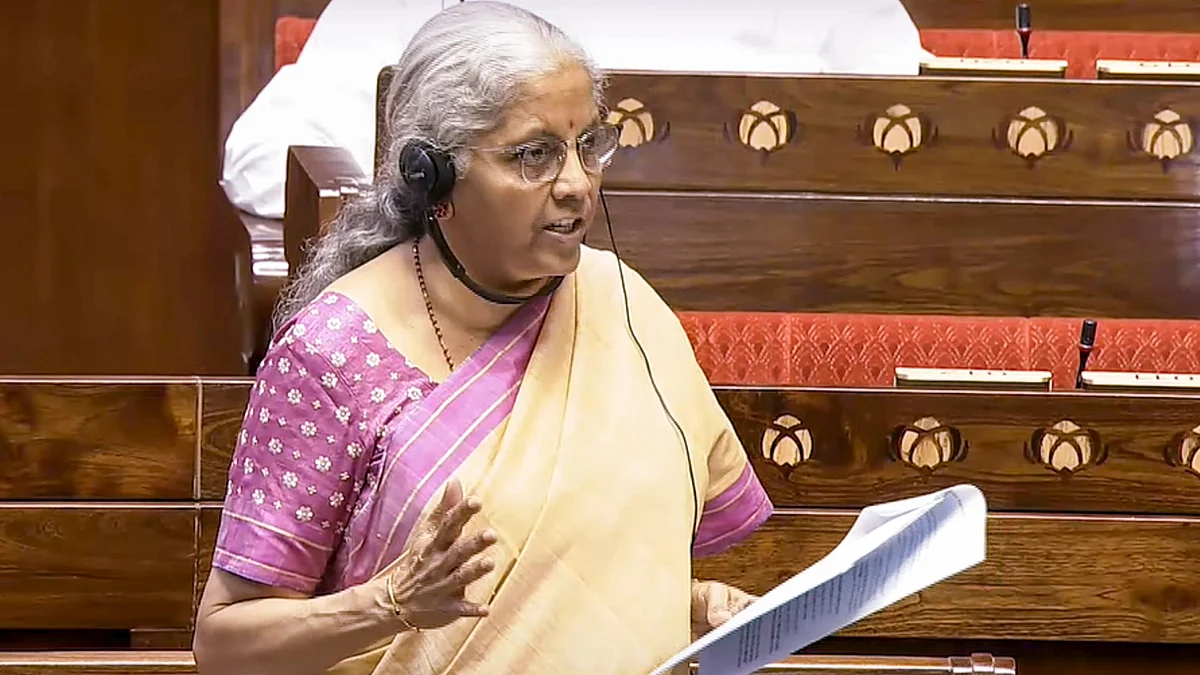Why the Narendra Modi govt did not want a debate on the Income Tax Bill
The Bill was withdrawn on Saturday, reintroduced on Monday and passed by the Lok Sabha in 3 minutes — in the absence of the Opposition

A day after the Income Tax Bill (2) 2025 — meant to replace the Income Tax Act, 1961 — was dramatically passed by the Lok Sabha without any debate, in just three minutes of voting, there is still little clarity on the details.
What's in the fine print? Not many know.
This is because the revised Bill was introduced barely two hours before it was put to the vote in the Lok Sabha on Monday, 11 August. There was no clause-by-clause debate on the revised Bill; the short two-hour time allowed little room for MPs to move any amendments.
The MPs belonging to the Opposition were in any case absent, having declared their plan to march to the Election Commission of India to protest against allegations of voter list fraud this same day. However, even MPs belonging to the ruling NDA alliance were given no time to read and compare the revised Bill with the old one — which was withdrawn on 9 August, Saturday — and propose amendments.
This has not come as a surprise, though. Parliament has got used to passing budgetary demands as well as important legislation without any discussion over the past several years.
The Income Tax Bill was first introduced in February in the Lok Sabha, ostensibly with the aim to simplify the existing Income Tax Act, which was deemed to be complicated with over 800 sections. The revised Bill submitted on Monday is expected to have incorporated the recommendations made by the parliamentary standing committee and has reportedly brought down the number of sections to 500-odd.
On Tuesday, 12 August, the government introduced the Income Tax Bill in the Rajya Sabha through a supplementary list of business. The Bill was actually uploaded at 6 p.m. on 11 August on the MPs’ portal for Rajya Sabha MPs to study. They were also allowed time till 1 p.m. on 12 August to submit amendments.
What explains the government’s generosity to the Rajya Sabha MPs, when MPs in the Lok Sabha were given no time to submit amendments? The explanation lies in the fact that being a Money Bill, the Rajya Sabha can only recommend amendments — not insist on them.
What we do know
The new and revised Income Tax Bill (no.2) 2025 passed by the Lok Sabha empowers Income Tax officials with the authority to access not just bank accounts, trading platforms, trading accounts and online investments, but also emails, social media and other documents over suspicions of tax evasion.
On mere suspicion, now, IT officials can conduct an intrusive and exhaustive search of personal and business correspondence and devices.
This controversial addition would have been fiercely debated and opposed had the Opposition been present in the Lower House in strength, and that is why presumably the government went to great lengths to ensure that no debate takes place.
On the plus side, the Income Tax (No 2) Bill, multiple media reports claim, the following features in the new Bill:
It streamlines TDS, exemptions and other compliance-heavy provisions.
It also allows individuals to claim refunds without penalty on delayed filings.
It provides for ‘nil’ TCS on Liberalised Remittance Scheme (LRS) remittances for education purposes financed by any financial institutions besides amnesty for ‘honest mistakes’ — with the ‘honesty’ to be determined at her own discretion by the ITO.
Wholly religious trusts and also the mixed-object trusts (religious + charitable) have been exempted from paying income tax, per the new Bill — unlike in the Bill introduced in February 2025.
Individuals not otherwise required to file ITR can still claim TDS refunds without being bound by the due date.
Professionals with receipts of over Rs 50 crore can use prescribed electronic payment modes.
The time limit for TDS correction statements has been reduced from 6 years to 2 years.
An exemption for the Unified Pension Scheme (UPS) has been added.
Direct tax benefits have been included for Saudi Arabia’s public investment funds.
Follow us on: Facebook, Twitter, Google News, Instagram
Join our official telegram channel (@nationalherald) and stay updated with the latest headlines
